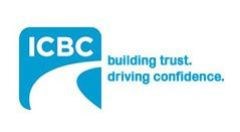After months of tough winter driving conditions, many British Columbians are likely making their first road trip of the year this Easter long weekend.
Drive carefully.
An average of four people are killed and 650 injured in 2,300 crashes in B.C. over the break, according to the Insurance Corporation of British Columbia. In the North Central region, the count is 20 people are injured in 130 crashes every year on average.
Even though winter is over, road conditions can still be challenging at this time of the year with increased long weekend traffic volumes and the possibility of rapidly changing weather and even flooded roads.
That's why ICBC is advising drivers to plan ahead and be realistic about travel times. Allow extra time for possible delays and check drivebc.ca for road and weather conditions before starting your trip.
Here are some further tips from ICBC for safe driving over the Easter longweekend:
Get some rest: Make sure you're well rested before heading out on a long drive. Take breaks or switch drivers every two hours to avoid fatigue.
Check your vehicle: If this is your first longer drive of the year, remember to check your engine oil, washer fluid, lights and inspect your vehicle tires, including the spare, to make sure they are in good condition and properly inflated.
Slow down on wet roads: Allow yourself at least twice the normal braking distance on wet or slippery roads. Avoid driving through flooded or washed out roads.
Share the road: Spring brings more cyclists, pedestrians and motorcyclists on our roads. So it's important for drivers to be alert and watch for all road users, especially at intersections. Avoid distractions and leave your phone alone.
Watch for wildlife warning signs: Animals may be feeding on plants near the roadside this spring. Slow down and use caution when you see wildlife on or near a highway, so you have time to react if an animal crosses your path.



